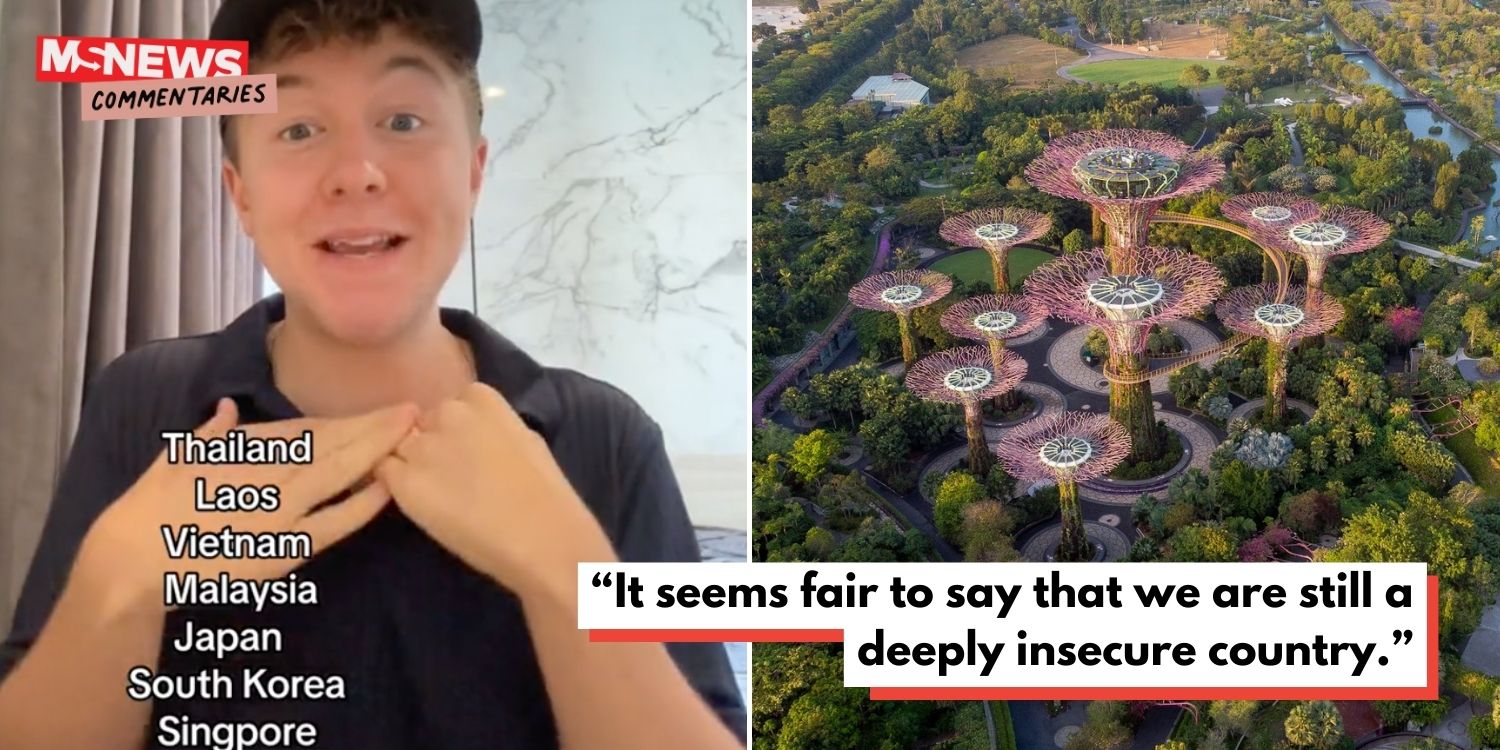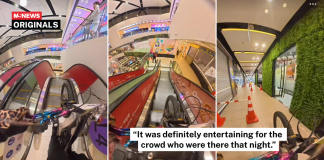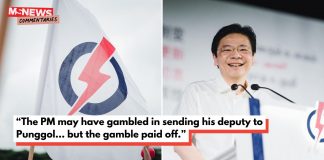Why do Singaporeans get so salty about foreigners criticising us?
It’s happened again. Some foreigner said unkind things about Singapore and people got real salty, as the kids say.
The latest culprit is the dastardly 18-year-old American @Zakattackcalii, whose opinion apparently matters because a) he has one and b) he has a platform on which to express it to his 118,000 TikTok followers.
In his list of “seven countries all over Southeast Asia” — Thailand, Laos, Vietnam, Malaysia, Japan, South Korea and lucky ole Singapore — he has visited in the last five months, “Singpore” was ranked DEAD LAST.
“There was like nothing to do in Singapore besides walk around and see a few things,” declares Zak, with all the confidence of an adolescent who apparently thinks Japan and South Korea are in Southeast Asia.
But that’s not the end of Zak’s audacity as he goes on to declare that our beloved city-state is “just so small” and “has very little culture” (how exactly does he define culture anyway?).
He even (unwittingly, I suspect) references cyberpunk author William Gibson, who once called Singapore ‘Disneyland with the death penalty’ in a 4,500 word article. Zac’s declaration: “Singapore reminds me of Disneyland just because everything in Singapore is perfect.”
Zak then sticks the knife in with the *chef’s kiss” coup de grace by saying: “Go to Malaysia! It is very similar but 10 times better.” Cue the bemused/outraged (and often grammatically challenged) comments.
“Next time better don’t ever step his foot on this land,” said one, while another denounced him as “rude and mean”. One commenter wryly remarked: “White dude still doesn’t know the meaning of the word ‘safety’.”
The outrage cycle
Zak is just the latest tourist/influencer/journalist to get some Singaporeans all hot and bothered because he had the temerity to express a negative opinion about our beloved country.
It tends to follow a pattern: person X criticises Singapore; Singaporeans get upset; Singaporeans (and sometimes even authorities) suggest some sort of punitive action; Singaporeans forget about it by the following week.
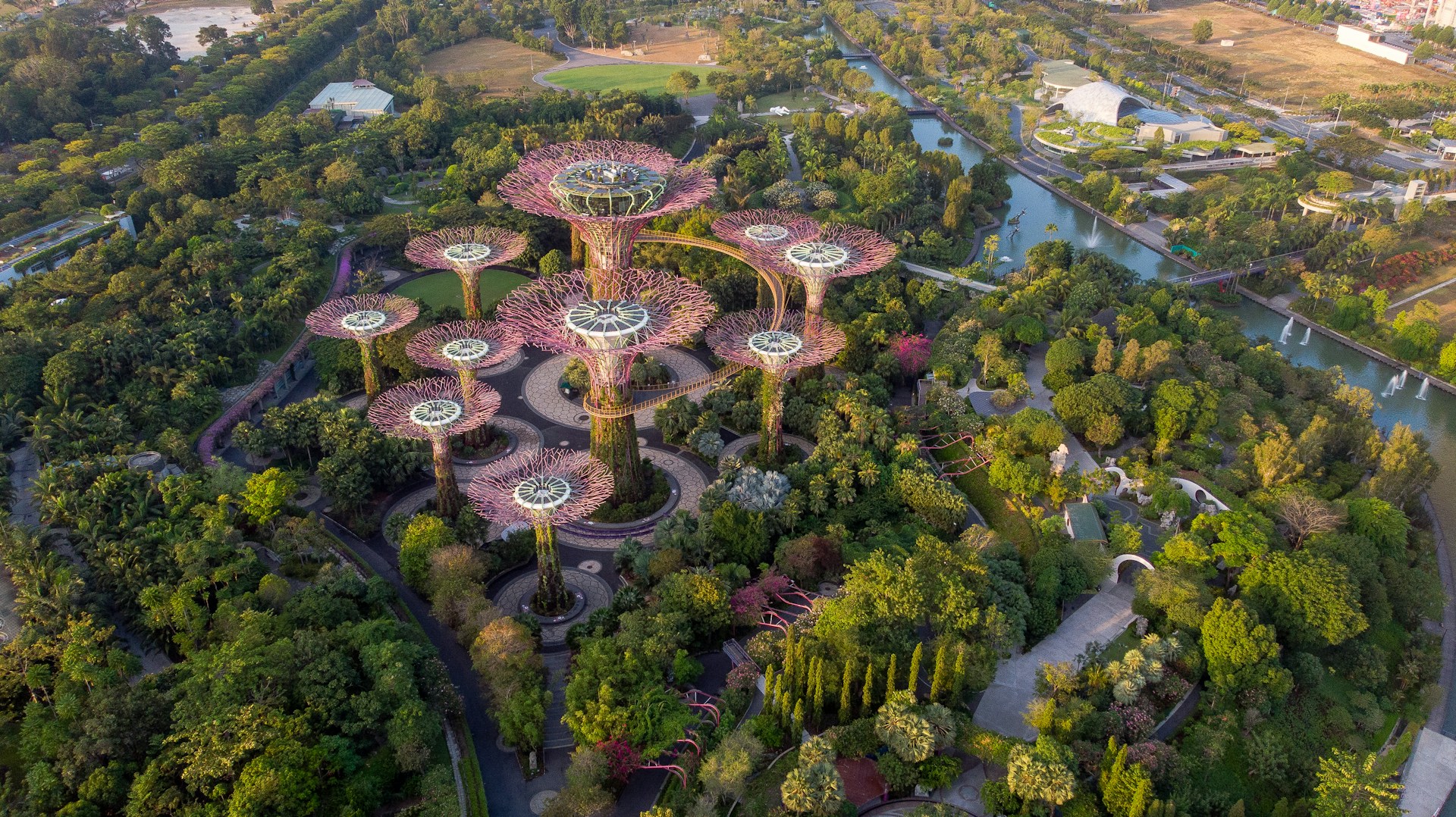
“Perfect” Singapore. Source: Sergio Sala on Unsplash
Notwithstanding the fact that Zak thinks Kuala Lumpur is “walkable” — he is entitled to his opinions, no matter how clueless or uninformed they may be.
This didn’t stop people from getting worked up, as if he were some sort of travel authority — and giving him lots of views in the process.
Zak’s post didn’t quite go viral, and was only picked up by a small number of media outlets, though the gleeful write-ups by some Malaysian outlets were amusing.
But the reaction in some quarters here was predictable — and telling.
A lifelong insecurity
Almost six decades of nationhood and four prime ministers later, it seems fair to say that we are still a deeply insecure country, from the highest levels of Government to the lowest tiers of society.
Whether it’s a minister loudly decrying “sneering” foreign media reports or a restaurant threatening to sue customers who leave negative online reviews, we do not seem to respond well to criticism, valid or otherwise.
It is, of course, almost impossible to quantify insecurity. But it also finds an expression in the constant need for validation in rankings — world’s busiest port, world’s best airport, school rankings, exam results.
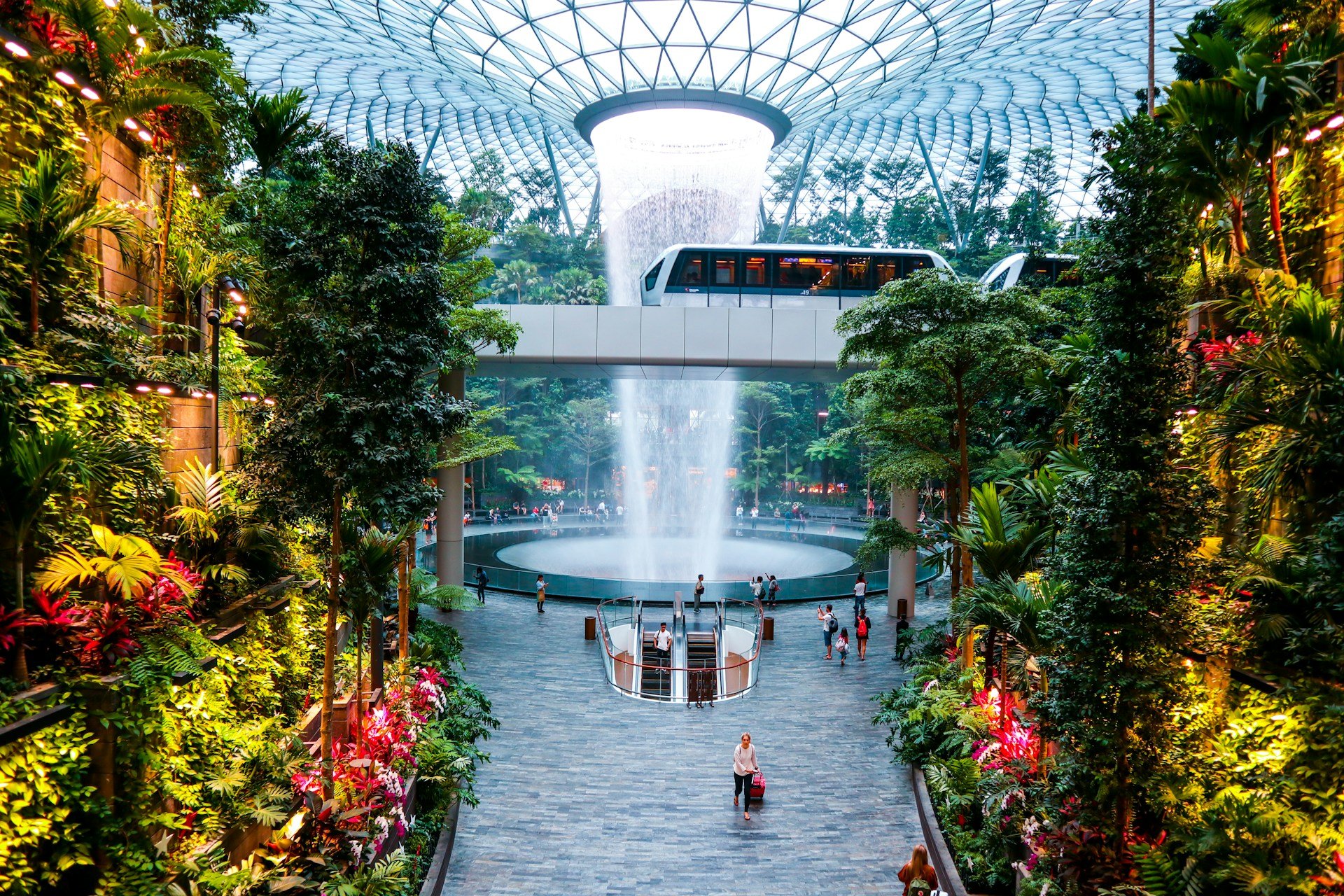
Source: Sreehari Devadas on Unsplash, for illustration purposes only
An aviation analyst once told me that authorities here follow global airport rankings “religiously”. Even the annual Star Awards can reduce celebrities to tears if they don’t make it to the list of the top 10 most popular artistes.
The ugly side of this mindset also comes out in the superiority complex that many hold when it comes to Malaysia and our immediate neighbours.
We certainly have much to be proud of, but if we dislike what we see as patronising comments, then perhaps we should not subject others to it, too.
Why are we so insecure?
My theory is that it all begins at a young age. As a schoolboy, an oft-heard response to critical words — one that I was also guilty of using — was “If you think you can do any better, do it yourself!”. I heard it in school, at home, in church and later on, at the workplace, too.
It was a particular favourite of those in authority, and I cannot help but think that this was a lesson we all unconsciously imbibed: that this was the proper way to respond to criticism.
Interestingly, there were also a fair few comments from some claiming to be Singaporeans that they actually agreed with Zak. This is the paradox that many of us live with: we get hot under the collar when Singapore is criticised, but then end up being our own harshest critics.
Perhaps this lack of self-confidence also comes from being constantly told that foreigners working in Singapore are hungrier and more hardworking, or that we should not use Singlish because we are a small nation and we won’t be understood by those from big ones.
All this results in a somewhat conflicted self-image.
Growing a thicker skin
Don’t get me wrong: uninformed criticism annoys me as well. As a journalist, I have seen more than my share of keyboard warriors variously accusing me of being a government stooge and/or an opposition shill.
Foreign commentators who know little about Singapore beyond caning, the death penalty and the ban on the sale of chewing gum also make me roll my eyes.
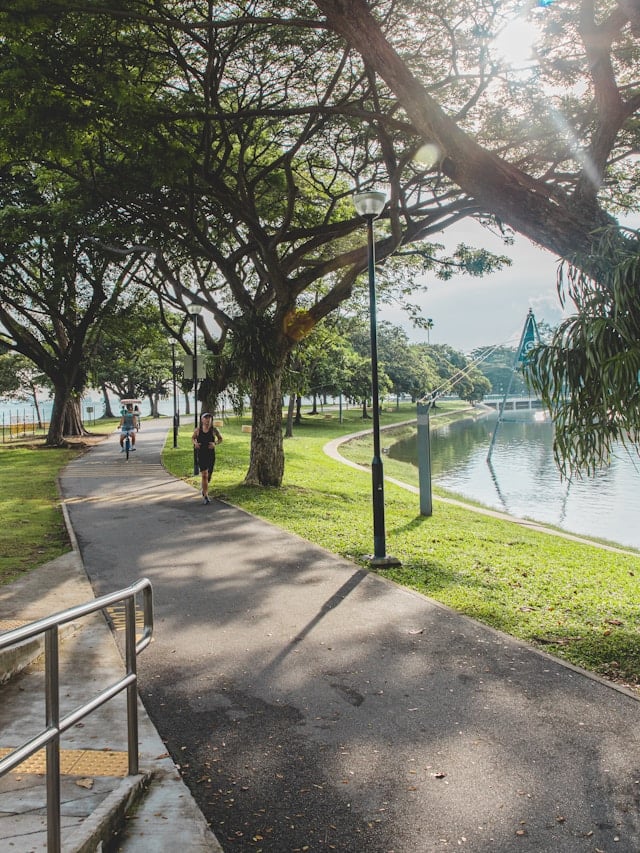
Source: Tobi on Unsplash
But I wish that we would have greater self-confidence, both individually and as a nation, to take criticism on the chin and have a civil conversation even with those who would denigrate us.
To engage with the substance of an argument and let the strength of your own ideas win out, rather than threaten a defamation lawsuit.
To have the capacity to acknowledge and reflect on our own flaws, if the criticism turns out to be valid.
And most importantly, to ignore the so-called views of those engaging us in bad faith, otherwise known as trolls. After all, the ability to respond to criticism without losing your cool reflects both self-belief as well as maturity.
Let’s all grow a thicker skin and practice a little selective hearing.
The happiest people don’t strive to be the best at everything, they just make the best out of all things. And aren’t we supposed to be the happiest country in Asia?
Nicholas Yong is a veteran journalist who has worked at media outlets such as BBC News and Yahoo News Singapore over the past 17 years.
Also read: Man in S’pore hits back at tourist complaints about country ‘not feeling like Southeast Asia’
Man in S’pore hits back at tourist complaints about country ‘not feeling like Southeast Asia’
Have news you must share? Get in touch with us via email at news@mustsharenews.com.
Featured image adapted from @zakattackcalii on TikTok and Sergio Sala on Unsplash, for illustration purposes only.
